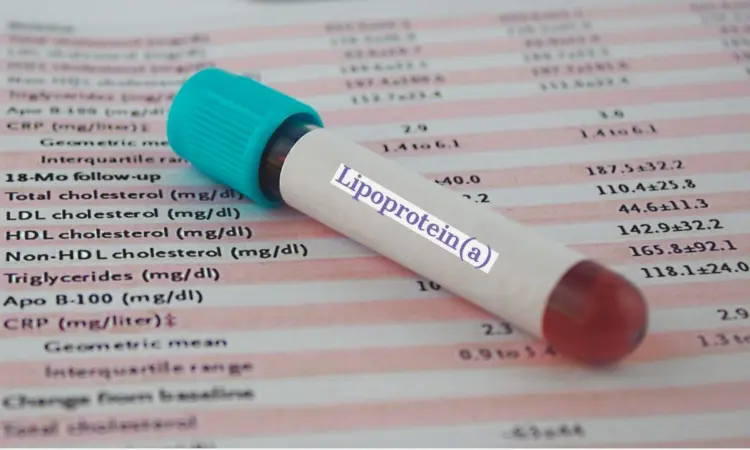- Home
- Medical news & Guidelines
- Anesthesiology
- Cardiology and CTVS
- Critical Care
- Dentistry
- Dermatology
- Diabetes and Endocrinology
- ENT
- Gastroenterology
- Medicine
- Nephrology
- Neurology
- Obstretics-Gynaecology
- Oncology
- Ophthalmology
- Orthopaedics
- Pediatrics-Neonatology
- Psychiatry
- Pulmonology
- Radiology
- Surgery
- Urology
- Laboratory Medicine
- Diet
- Nursing
- Paramedical
- Physiotherapy
- Health news
- Fact Check
- Bone Health Fact Check
- Brain Health Fact Check
- Cancer Related Fact Check
- Child Care Fact Check
- Dental and oral health fact check
- Diabetes and metabolic health fact check
- Diet and Nutrition Fact Check
- Eye and ENT Care Fact Check
- Fitness fact check
- Gut health fact check
- Heart health fact check
- Kidney health fact check
- Medical education fact check
- Men's health fact check
- Respiratory fact check
- Skin and hair care fact check
- Vaccine and Immunization fact check
- Women's health fact check
- AYUSH
- State News
- Andaman and Nicobar Islands
- Andhra Pradesh
- Arunachal Pradesh
- Assam
- Bihar
- Chandigarh
- Chattisgarh
- Dadra and Nagar Haveli
- Daman and Diu
- Delhi
- Goa
- Gujarat
- Haryana
- Himachal Pradesh
- Jammu & Kashmir
- Jharkhand
- Karnataka
- Kerala
- Ladakh
- Lakshadweep
- Madhya Pradesh
- Maharashtra
- Manipur
- Meghalaya
- Mizoram
- Nagaland
- Odisha
- Puducherry
- Punjab
- Rajasthan
- Sikkim
- Tamil Nadu
- Telangana
- Tripura
- Uttar Pradesh
- Uttrakhand
- West Bengal
- Medical Education
- Industry
Lipoprotein(a) Levels Linked to Increased Risk of In-Stent Restenosis Post-PCI: New Study Reveals

USA: Recent research has shed light on the connection between lipoprotein(a) levels and the long-term risk of in-stent restenosis (ISR) following percutaneous coronary intervention (PCI), offering valuable insights into cardiovascular health management. The study underscores the significance of this lipoprotein variant in predicting post-procedural outcomes.
The study, published in the European Journal of Preventive Cardiology, revealed that high lipoprotein(a), or Lp(a), was independently associated with in-stent restenosis after PCI based on a retrospective report.
"Lp(a) is an independent predictor for long-term in-stent restenosis and should be considered to evaluate patients undergoing PCI," the researchers wrote.
Lipoprotein(a), often abbreviated as Lp(a), is a subtype of lipoprotein known for its atherogenic properties, contributing to plaque buildup within arteries. Lp(a) has demonstrated its association with myocardial infarction and atherosclerosis. However, its role in the development of ISR after percutaneous coronary intervention is not yet established. Ahmed K Mahmoud, Department of Cardiovascular Medicine, Mayo Clinic, Phoenix, Arizona, USA, and colleagues aimed to investigate the association between Lp(a) and ISR.
For this purpose, the researchers conducted a retrospective study of adult patients who underwent successful PCI between 2006 and 2017 at the three Mayo Clinic sites and had a preprocedural Lp(a) measurement. According to the serum Lp(a) concentration, patients were divided into two groups (high Lp(a) ≥50 mg/dl and low Lp(a) <50 mg/dl). Univariable and multivariable analyses were performed to compare ISR risk between patients with high Lp(a) versus those with low Lp(a).
The following were the key findings of the study:
- 1209 patients were included, with a mean age of 65.9 ±11.7 years, and 71.8% were male. Median follow-up after baseline PCI was 8.8 years.
- Restenosis was observed in 13.4% of patients. Median serum levels of Lp(a) were significantly higher in patients affected by ISR versus non-affected cases: 27 versus 20 mg/dL.
- The rate of ISR was significantly higher among patients with high Lp(a) versus patients with low Lp(a) values (17.0% vs 11.6%).
- High Lp(a) values were independently associated with ISR events (HR 1.67), and this association was more prominent after the first year following the PCI.
The findings showed that Lp(a) should be considered a risk factor for long-term in-stent restenosis to evaluate patients undergoing PCI and assessed as a potential therapeutic target for reducing residual cardiovascular risk in this population.
In conclusion, the study on lipoprotein(a) and in-stent restenosis offers a pivotal step forward in understanding the intricate dynamics of cardiovascular risk factors. It reinforces the need for comprehensive risk assessment and targeted interventions to mitigate complications and promote long-term heart health following coronary interventions.
Reference:
Mahmoud, A. K., Farina, J. M., Awad, K., Ali, N. B., Pereyra, M., Scalia, I. G., Abbas, M. T., Allam, M. N., Kamal, M. A., Abu Rmilah, A. A., Chao, C., Timothy, B., Alsidawi, S., Lester, S. J., Pollack, P. M., Alkhouli, M. A., Lee, K. S., Yang, E. H., Lee, R. W., . . . Arsanjani, R. Lipoprotein(a) and Long-term In-stent Restenosis after Percutaneous Coronary Intervention. European Journal of Preventive Cardiology. https://doi.org/10.1093/eurjpc/zwae212
Dr Kamal Kant Kohli-MBBS, DTCD- a chest specialist with more than 30 years of practice and a flair for writing clinical articles, Dr Kamal Kant Kohli joined Medical Dialogues as a Chief Editor of Medical News. Besides writing articles, as an editor, he proofreads and verifies all the medical content published on Medical Dialogues including those coming from journals, studies,medical conferences,guidelines etc. Email: drkohli@medicaldialogues.in. Contact no. 011-43720751


